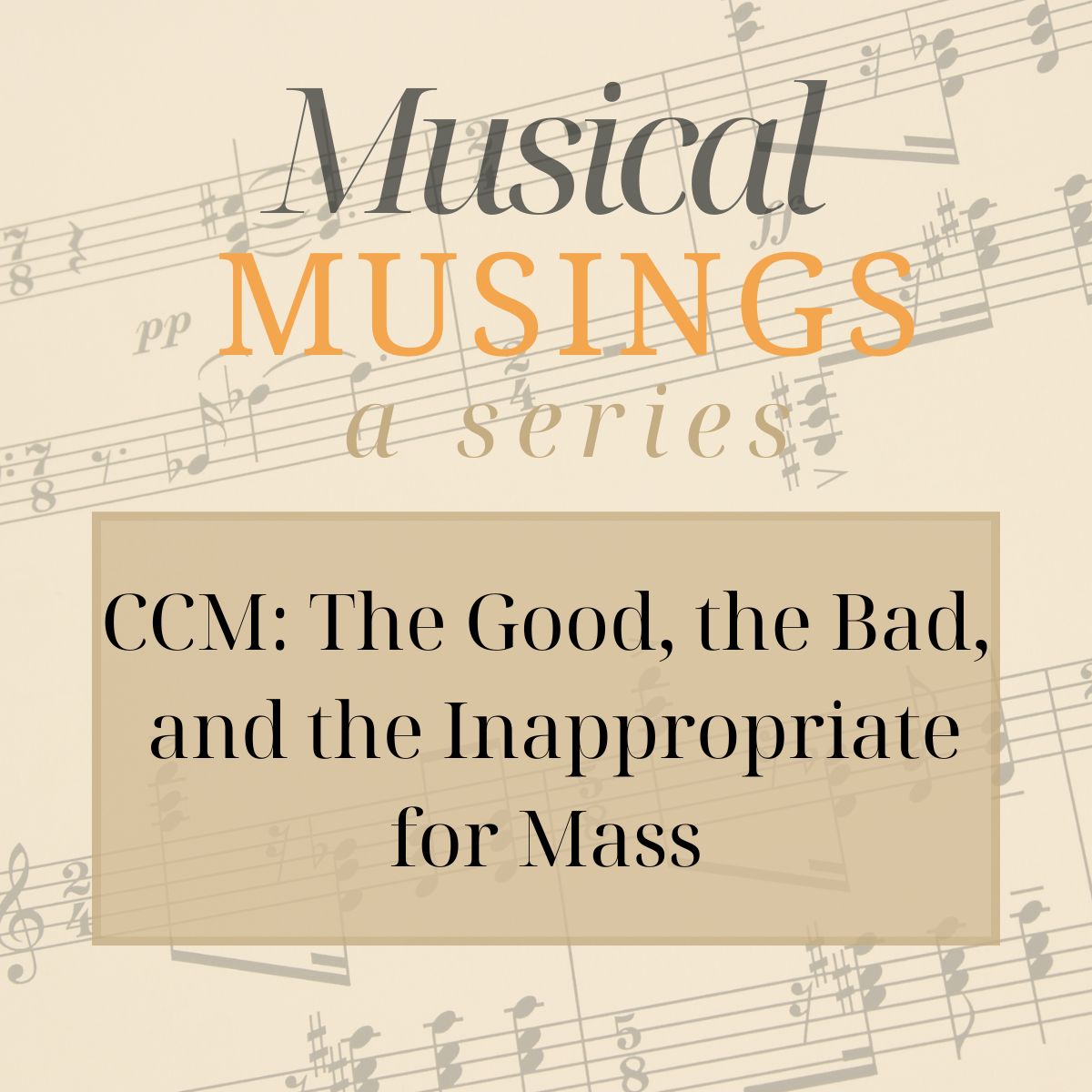
“If a song or a piece of music does not fulfill it’s ministerial function, it is better to be silent.” – Lucien Deiss
“Extraordinary, how potent cheap music is.” – Noel Coward
It’s back to school time! Did you know that my work as a liturgical musician extends beyond our parish collaborative as well? During the academic year, I also plan and provide music for the liturgies at Regis College in Weston. Every year, the director of ministry reaches out to the student body about the music we use at Mass, primarily to make them involved and invested in the liturgy, and to help foster a worship environment that makes them feel at home and welcome. And every year, I am reminded of one fundamental truth: this generation of students (just like every other demographic) is far from monolithic. The responses are truly from across the board. “Kids these days” have tastes that range from traditional hymnody to contemporary Catholic composers, from 70’s-80’s “folk mass” standards to radio-friendly Contemporary Christian Music, and from chant to evangelical/non-denominational Praise and Worship. There really is no one style or genre that speaks to “the youth” unilaterally. So I do my best to accommodate, while at the same time, maintain the integrity of the liturgy as a first priority. Of course, I try to do the same here at the parish level, but I find it a lot easier – there is no four-year turnover like you have in a campus ministry environment, so the congregation is more consistent (and as a result, so are their opinions and tastes.)
But the one genre that I have the hardest time with is the CCM/Praise and Worship material. More often than not, it gets shot down for legal reasons (either church or civil law.) According to the Church, music for liturgy should be vetted as appropriate by the diocese or archdiocese prior to its use, though more often than not, a blanket approval is given for music published in Catholic hymnals (such as Breaking Bread, Gather, or others published by GIA, OCP, WLP, etc., each of which goes through this process in their diocese of origin and that judgement is respected in the rest of the dioceses around the country. And according to US copyright laws, our ability to print worship aids is limited to those same publishers, with whom the parish (or college) purchases a license to reprint. Still, there are other, deeper issues that often arise. A lot of it musically well written, but the theology behind lacks any depth. It became a joke for a while that most praise and worship music could just as easily be interpreted as being sung about the singer’s significant other as it was to God. (“We’re going all the way, and the wonder of it all is that I’m living just to fall more in love with you” is a lyric from the CCM band, Delirious, for example.) Others are so focused on their own act of praising God and not on God himself. “Here I am to worship, here I am to bow down, here I am to say that you’re my God! / You’re altogether lovely, altogether worthy, altogether wonderful to me!” (Emphasis mine.) To my ears, this popular refrain echoes the prayer of the parable’s Pharisee more than it does the tax collector (Luke 18:9-14).
This of course is not to say that there isn’t good, solid, well written contemporary Christian music out there. It just means that I’m always a little more critical when considering it for use in the church. While it’s a little tongue-in-cheek, the King of the Hill character Hank Hill said it best:
“Can’t you see you’re not making Christianity better, you’re just making rock and roll worse?”
Please accept this invitation to participate more fully, more actively, in our parish’s music ministry. If you are interested in singing in the choir, leading the congregation as a cantor,
or enriching our liturgy as an instrumentalist, email Shawn Gelzleichter at sgelzleichter@gmail.com or call the rectory at 781-662-8844.